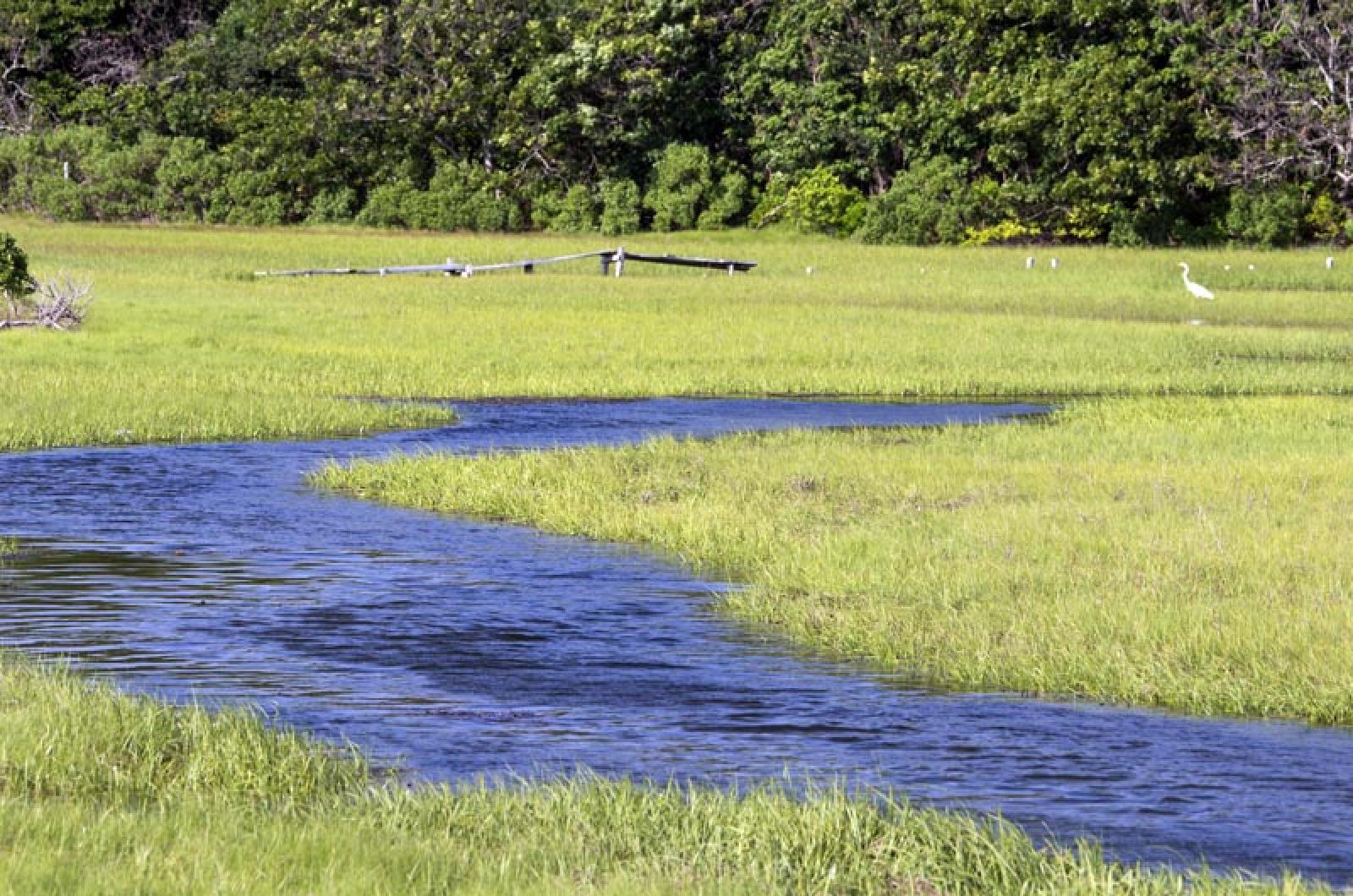I completely agree with the Gazette’s Oct. 9 editorial (The Commission in Transition). Now is a perfect time for the Martha’s Vineyard Commission to “articulate its mission and reconsider its priorities.” To take it a step further, it is time for the commission to prioritize its planning under the umbrella of climate change.
Climate change is the most critical issue facing the Island. And, as our regional planning agency, the commission has a responsibility to aggressively address its short and long-term impacts. Just about every issue facing the commission is affected by climate change: coastal planning, transportation, water quality and fishing, farming, health care, invasive species management, and, of course, the economy.
The variety of shorelines that ring the Island — beaches, banks, dunes, seawalls and revetments — are all affected by erosion, storm surge, flooding and sea level rise, which is expected to be three to four times higher on the eastern coast of the United States than the global average. What will our coast look like in 10, 30, or 70 years? What can we do to protect the beaches that are critical to the Island economy?
Coastal roads are at risk of flooding and wash-outs, including bus routes, hospital routes and scenic vistas such as East Chop Drive atop the East Chop bluff. Beach Road is frequently flooded in storms. Sea level rise will swallow the ferry dock on Chappaquiddick. Should we be planning to raise coastal roads? Study the impacts of increased traffic on inland roads when low-lying roads are damaged indefinitely by storms or lost completely?
Increased ocean acidification is weakening the shells of our native shellfish. Stronger rainstorms rush polluted runoff into the ponds. The fishing industry is in a flux as historic fish species move north to colder waters and southern species migrate to our fishing grounds.
How will increased temperatures, stronger rain storms and prolonged drought affect Island farmers?
Is the Island medical community addressing the expected increases in heat-related illness, worsening allergy and asthma symptoms, mold-induced illness as flooding of homes becomes more common?
Invasive species are crowding out well-adapted native plants and creating monocultures. This affects food sources and habitat for wildlife. What species do we attempt to control? Are chemical treatments acceptable? Phragmites overpower native plants but also help control nitrogen in the ponds — what is an effective management plan?
The beaches and natural beauty of the Island are the keys to our economy, the reason people spend extra money to live on and visit this slice of land in the sea. How do we decide what to protect? What should be left to fate? How do we pay for storm-related clean-up and repairs? Where do we find the billions of dollars required to preserve shorelines and roads? And what about the millions in lost taxes as coastal homes give way to the sea?
The town of Oak Bluffs has been granted Community Preservation Act funds for a Coastal Climate Change Vulnerability Assessment and Adaptation Plan. State-of-the-art computer modeling will be used to assess the risks of climate change on our coast. Based on the results, specific plans will be recommended to address the impacts. Such a study is considered a priority for successful climate change planning. This needs to be done Islandwide. It is a perfect example of the need for regional planning.
A change in leadership is a time for both reflection and action. Climate change is a critical challenge to our natural environment, human health, and the economy. It can’t be addressed in pieces — coastal planning here, transportation there. It’s all connected. We need a strong, coordinated, Islandwide approach to climate change planning and advocacy. The commission has the opportunity and the responsibility to lead the charge.
Elizabeth Durkee is the Oak Bluffs conservation agent, a member of the board of directors for the Vineyard Conservation Society and a member of the advisory committee for 350 MVI . She lives in Oak Bluffs.







Comments (10)
Comments
Comment policy »